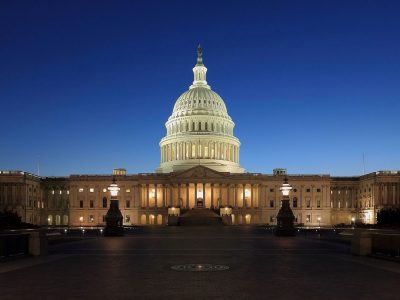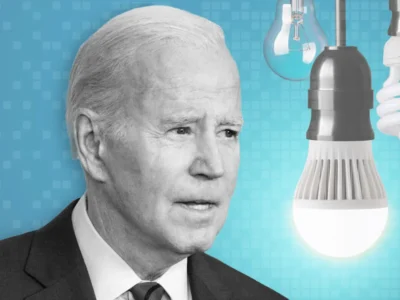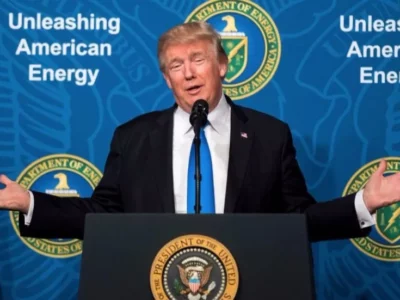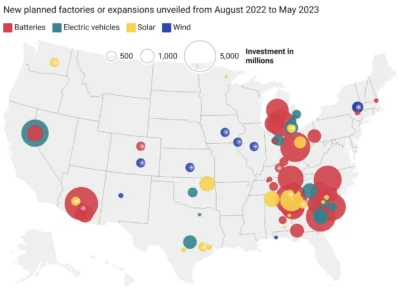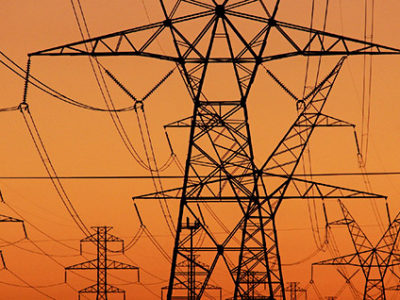Energy
The Ten Most Important U.S. Environmental Laws
Some of the choices may surprise you.
What are America’s most important environmental laws? Some are familiar, such as the federal air and water pollution laws, and the Endangered Species Act. But there are other people rarely hear about — even in environmental law courses — but have done a lot to protect the environment.
CONTINUE READINGLuminosity
The story behind today’s energy efficient lighting and a forgotten episode in the culture wars.
The conservative fight to save an obsolete lighting technology – the incandescent bulb — has something to tell us about current environmental disputes and the nature of culture wars.
CONTINUE READINGThe Hawai’i Youth Climate Trial
Thirteen youth plaintiffs say the Aloha State is failing to live up to its ambitious climate goals. Here’s what to watch for as Navahine v. Hawaiʻi Department of Transportation goes to trial this month.
Last summer, many Americans were glued to the events unfolding in Maui as a raging inferno overtook the town of Lahaina, trapping thousands and killing at least 99 people. This summer, we’ll see 13 youth plaintiffs in Hawaiʻi take the state’s Department of Transportation to court for allegedly failing to implement climate policies meant to …
Continue reading “The Hawai’i Youth Climate Trial”
CONTINUE READINGHillary Clinton, Climate Change, and the ‘Sliding Doors’ of History
Here’s what could have happened instead of Trump’s crusade against climate action, if Clinton had squeaked out a victory in 2016.
If Hillary Clinton had won, we would be much further along today in the battle to cut carbon emissions and control climate change. Instead, Trump was a climate disaster. The bottom line: Elections do matter. Not just for politicians but for all of us.
CONTINUE READINGHypothetically Speaking: What if Trump Had Won in 2020?
In terms of climate policy, the short answer is “nearly total destruction.”
Trump’s end point from his first term — zeroing out federal climate action — would have been his starting point after reelection. The next steps would have been an effort to end state-level and private climate action, and a massive increase in oil & gas production and use.
CONTINUE READINGCan the IRA Trump-Proof Itself?
Building A Political Firewall Against IRA Repeal
Biden’s signature climate law, the Inflation Reduction Act, is squarely in Donald Trump’s sights. There is certainly a risk that a GOP sweep in November would result in repeal, as I’ve written before. Yet there are increasing signs that the IRA has created a powerful political constituency deep in Republican domains. This will make repealing …
Continue reading “Can the IRA Trump-Proof Itself?”
CONTINUE READINGFinalists to be Trump’s Veep Pick
Not surprisingly, none of them augurs well for the environment, but some are worse than others.
All four candidates are strong supporters of fossil fuels. Burgham’s willingness to talk about carbon neutrality makes him the most promising on environmental issues, while Vance’s unblemished anti-environmentalism makes him the worst. It’s hard to guess at whom Trump will choose, but Vance’s anti-environmentalism could give him an edge.
CONTINUE READINGTrump’s War on Environmental Protection: A Chronology
Yes, there were over 100 environmental rollbacks. Here are the biggest.
From when he took office to the day he left, Trump lead a steady drumbeat of environmental rollback after environmental rollback. His goals: eliminate limits on pollution from fossil fuels and end protection of public lands.
CONTINUE READINGImportant Progress Toward a Climate-Ready Grid
New transmission is crucial. This is how FERC is starting to address the problem.
We urgently need more transmission to accommodate renewable energy, increased energy demand, and grid resilience to climate disasters. Yet the transmission approval process has been badly broken, often favoring small projects that plump up utility profits but do little to address longterm or regional transmission needs. Last week, the government took steps to improve permitting …
Continue reading “Important Progress Toward a Climate-Ready Grid”
CONTINUE READINGFlorida Governor DeSantis’ Head-In-The-Sand Climate Change Policies
New Florida Law Strikes Term “Climate Change” From State Laws, Promotes Fossil Fuels & Rejects Renewable Energy Projects
Florida Governor Ron DeSantis, in coordination with an equally myopic and partisan Florida Legislature, has approved new state legislation (HB 1645) that eliminates the term “climate change” from numerous existing Florida statutes that former Republican Governor Charlie Crist signed into law in 2008. The legislation, which takes effect on July 1st, is not just symbolic: …
Continue reading “Florida Governor DeSantis’ Head-In-The-Sand Climate Change Policies”
CONTINUE READING



